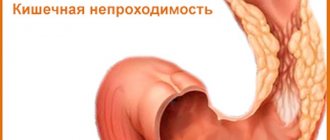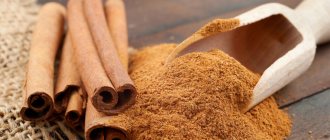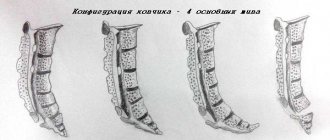Halitosis (or bad breath) can greatly ruin life, adding difficulties in communication (especially in intimate life), affecting mood and well-being. But the smell can be quickly eliminated using simple methods if you determine the cause of this symptom. Due to the fact that the independent manifestation of halitosis occurs infrequently (after certain foods), but is a symptom of a particular disease, eliminating the problem without establishing the true cause is not possible. So, today you will learn everything about strong breath - causes and treatment, available remedies and methods.
Strong odor from the mouth - causes and treatment
Why does my breath smell?
Halitosis can occur for both physiological and pathological reasons. In the first case, the unpleasant odor occurs due to:
- non-compliance with hygiene rules;
- taking certain medications;
- strict diet, fasting;
- bad habits (especially smoking and drinking alcohol).
If, with proper care, you are bothered by bad breath, you should pay attention to your health. An unpleasant odor can be a manifestation of many pathologies of internal organs and systems.
In such cases, eliminating the smell is not difficult. You just need to use camouflage products and pay more attention to hygiene procedures (more on this a little later).
Important! Halitosis is not always so harmless - there are diseases of the gastrointestinal tract, oral cavity, endocrine/respiratory system, one of the symptoms of which is bad breath.
Bad breath
Depending on the specific pathology, the nature of the odor may vary slightly. So, it could be:
- putrid;
- sweet;
- feces;
- ammonia;
- acetone;
- sour;
- rotten (smell of rotten eggs).
Bad breath is the cause of many problems
Based on the specific nature of the unpleasant odor, the doctor will be able to choose the direction in which to look for the cause of the problem.
Diagnostics
Halitosis is the official name of the pathology, regardless of the cause. To diagnose the cause and further treatment, you must consult a dentist. He will use the machine to assess the intensity of halitosis and also check for dental causes. The dentist will measure the level of plaque on your teeth and tongue.
The specialist conducts an examination and interviews the patient. It is necessary to remember when the bad breath appeared, the reasons for the patients, for what diseases, its intensity, whether there are problems with the gastrointestinal tract or excretory organs. Specialists have instruments to measure the amount of sulfur secretions in the exhalation. General tests and examinations of the digestive organs, examination of the larynx, nasopharynx are carried out, and the level of kidney and liver enzymes is detected. As a result, you may need to consult not only a dentist, but also a gastroenterologist, ENT specialist, pulmonologist and urologist.
Important!
Before undergoing diagnostics, it is prohibited to use sprays or cosmetics for breathing.
Two days before the examination, you must stop eating spicy food and do not use mouthwashes or breath fresheners for 12 hours.
The entire diagnostic process comes down to identifying the cause of this phenomenon. Treatment directly depends on this.
In chronic diseases, bad breath may indicate an exacerbation. In this case, treatment should be adjusted.
Often a person focuses too much on bad breath. There is halitophobia, which in adults is characterized by a fear of staleness. The disease causes panic and provokes a person to constantly use refreshing products. In this case, the diagnosis does not reveal the cause of the pathology; in very advanced cases, treatment by a psychologist is necessary.
Types of halitosis
Let's start with the fact that occasionally there are cases when the smell is only in the patient's consciousness . Before you start looking for a suitable treatment option, you should make sure that the unpleasant symptom actually occurs. Today, the following types of halitosis are distinguished:
- pseudohalitosis - the unpleasant odor is insignificant, others can feel it only upon close contact;
- true halitosis - there really is a problem, and others know about it;
- halitophobia is when a person is convinced that his breath is stale, but those around him do not notice the problems.
Halitophobia - what is it?
In the first case, the problem can be solved by more thorough cleaning of the mouth or additional use of mouthwash.
Halitosis is a serious symptom that requires rapid elimination
Putrid smell
It may be a sign of the following pathological processes occurring in the oral cavity:
- stomatitis;
- periodontal disease;
- caries;
- plaque;
- diseases of the salivary glands.
Plaque
In addition, these may be diseases of the respiratory system:
- bronchitis;
- sinusitis;
- allergic rhinitis;
- angina;
- pneumonia.
Pneumonia
Another common cause of halitosis is gastrointestinal diseases, as well as the body's reactions to alcohol or smoking .
Stool smell
Appears with intestinal pathologies, such as impaired motility, intestinal obstruction, constipation. Under such conditions, fermentation/rotting processes occur, which is why the smell of feces occurs. In infectious diseases of the respiratory system, the smell of feces is rarely observed.
Diabetes
If the blood sugar level rises significantly, at the same time a lot of ketone bodies appear, the smell of which is vaguely reminiscent of acetone. Due to the fact that the kidneys are unable to fully remove sugar breakdown products from the body, the lungs come to their aid. In short, halitosis is explained by the fact that ketone bodies are excreted through the respiratory system.
Ketone bodies
Important information! If you notice the smell of acetone in the breath of someone close to you, the person should be hospitalized as soon as possible! The fact is that such a symptom may be a harbinger of a diabetic coma.
Acetone
There are many reasons why the smell of acetone appears, but the most harmless of them is simple indigestion. In other cases, the smell of acetone is an extremely alarming signal, usually indicating damage to the pancreas (we are talking about diabetes). In addition, the acetone smell appears when the kidneys or liver are damaged.
Smell of acetone from the mouth
Hyperthyroidism
In severe forms of this condition, which is accompanied by an excess of thyroid hormones, a crisis is often observed - a rather serious complication. Its symptoms include the smell of acetone in the urine or from the mouth, high body temperature, general weakness, vomiting, a sudden drop in blood pressure, and tachycardia. If all these symptoms are present, the patient requires emergency hospitalization. There can be no talk of any self-medication!
Excess of thyroid hormones leads to a disease - hyperthyroidism, the symptoms of which are varied and have vivid clinical manifestations.
Kidney diseases
Problems with the excretory function of the kidneys (dystrophy, acute renal failure, nephrosis) are often accompanied by an acetone odor from the mouth.
On a note! In general, the smell of acetone should in any case be a reason to immediately consult a doctor. After all, this symptom, as we have already found out, is often not harmless and is a precursor to serious conditions.
Sweetish smell
This is a frequent “companion” of those who suffer from a lack of vitamins/nutrients or from diabetes. What is typical is that the symptom does not disappear even with the best oral hygiene. The problem can only be solved with complete treatment.
Masking bad breath does not solve the problem in case of serious pathology; the use of odor-eliminating agents has a short-term effect
Sour smell
It is a sign of increased stomach acidity - a pathology in which there is an excess of hydrochloric acid (occurs with pancreatitis, gastritis, esophageal diverticulitis, peptic ulcer). In addition to the unpleasant odor, the patient also often suffers from nausea and heartburn.
Development of pancreatitis. Stones in the pancreatic ducts
Ammonia
The smell of ammonia is a sign of kidney problems.
Rotten eggs
Typically, this smell is associated with stomach diseases - gastritis, accompanied by low acidity, and food poisoning.
Sometimes the causes of halitosis lie far from the oral cavity
What to do if an unpleasant odor appears
If a person is concerned about the spread of a disgusting odor from the mouth, it is necessary to take measures to eliminate the cause of this phenomenon:
- If there are pathologies of the gastrointestinal tract, respiratory system, kidneys, liver, you should undergo diagnostics and begin appropriate treatment.
- If the smell is associated with alcohol consumption, you should stop drinking alcohol.
- You should constantly monitor your oral hygiene and brush your teeth 2 times a day. To remove food debris, use toothpicks. Dental floss helps clean your teeth and tongue.
- If you are bothered by a bad smell after eating, you can use chewing gum.
- Brushing your teeth, chewing gum, dill or parsley will help get rid of the cause of the smell after garlic or onions.
- If a chronic smell of acetone appears, you need to get tested for sugar, and if necessary, treat diabetes.
- If an ammonia odor occurs, your kidneys should be checked and their diseases treated.
The appearance of stale exhaled air is due to physiological and pathological reasons. Sometimes brushing your teeth regularly and avoiding smelly foods can help get rid of bad breath. If it is caused by diseases, they should be treated.
Stomach diseases
Almost all diseases of this type, if they are accompanied by bad breath, are infectious in nature. The main cause of the phenomenon is the bacterium Helicobacter pylori.
Stomach diseases are a common cause of unpleasant amber.
Note! If one family member becomes infected, the infection will quickly spread to the rest of the house's residents. Although not everyone suffers from the disease - sometimes carriage of Helicobacter does not cause any harm if everything is in order with the immune system. When the defenses weaken, Helicobacter multiplies and produces toxins, which, in turn, cause ulcers, gastritis, polyps and tumors. With all these diseases, an unpleasant odor often appears.
Features of treatment
When the doctor makes an accurate diagnosis (that is, confirms that the unpleasant odor appeared precisely because of the stomach) and identifies concomitant diseases, he will select the required amount of therapeutic measures, which may include taking medications, folk remedies, as well as proper nutrition. Among all the medications used, it is worth highlighting the following.
- "Almagel". Intended for the treatment of ulcers, gastritis, has a protective and analgesic effect on the stomach.
"Almagel"
- "Festal", "Creon" . Enzymatic agents that can speed up the process of breaking down food and, as a result, get rid of halitosis. The drugs improve digestion, activate intestinal motility, and eliminate pain in the gastrointestinal tract.
- "Omez". Improves the breakdown of food, which is why it does not rot. Therefore, it eliminates unpleasant odors.
"Omez"
- Antibacterial agents . Used if inflammatory processes have been confirmed. When choosing a specific drug, the type of disease, its stage, and the form of inflammation are taken into account.
Important! Drug treatment should be prescribed exclusively by a qualified doctor after reviewing the examination results! Refrain from self-medication, because even if the problem reappears, the drugs that helped earlier may no longer be effective.
Possible complications
Lack of therapy leads to an increased risk of infection of internal organs and a critical decrease in immunity. The patient becomes vulnerable to any disease and experiences discomfort in the digestive system. The functionality of the nervous and genitourinary systems is disrupted, and irreversible changes appear. Through the mucous membrane of the mouth, worms penetrate into the blood, causing diseases of the kidneys, heart, liver, and brain. Long-term non-treatment is fraught with fatal outcome.
Fact! From the oral mucosa, worms can penetrate the eyeball and ear canals, and this is fraught with blindness and deafness.
How to determine if your breath smells?
A similar test can be easily carried out at home using one of the methods described below.
- Exhale sharply into your cupped hands. If there is no fresh breath, you will immediately know about it.
Cup your palms so that the air exhaled through your mouth enters your nose.
- Lick your wrist, wait a few seconds and smell. It is worth noting that this method will allow you to determine the presence of odor on the front tip of the tongue, although in the root area the aroma is much stronger.
When the saliva has dried, smell the inside of your wrist.
- Take a spoon and swipe it over your tongue several times to determine what your breath smells like.
There is another way. Exhale into a clean plastic cup or other container. After taking a deep breath, bring the cup to your face so that it covers your mouth and nose at the same time as tightly as possible. After this, slowly exhale through your mouth, filling the cup with your warm breath. And immediately take a deep breath through your nose - this way you can smell your breath.
Signs of bad breath can also include unpleasant sensations in the mouth (for example, taste, dryness, pain, burning, etc.).
Very often people with very bad breath do not know about this problem, because those around them are too correct and well-mannered to tell them about it
The effectiveness of folk remedies
Alternative medicine recipes today are considered no less popular than several decades ago, and are quite effective in helping to solve the problem.
pros
The main advantage of the products is the ability to use them at home without prior consultation with a specialist. The ingredients for each recipe are accessible, easy to use, and effective.
In addition to eliminating the main symptom, natural medicines have a beneficial effect on the body as a whole, the condition of the teeth and the entire oral cavity. The preparation is easy, quick, and can be used for a long period.
Folk remedies often become a salvation for patients who are prone to allergic manifestations.
Minuses
The disadvantage of traditional methods of treatment is the short-term effect after use. To obtain lasting results, it is necessary to use medications on an ongoing basis and carefully monitor oral hygiene.
If you have serious diseases of the internal organs, gums or teeth, natural remedies will not help. The root cause needs to be removed. Some patients have intolerance to medicinal herbs and bee products, which are often used in recipes.
Which doctor should I contact?
To determine the cause, you should visit specialized specialists:
- surgeon;
- dentist;
- gastroenterologist;
- otolaryngologist;
- pulmonologist
Halitosis due to oral diseases carries more weight among other causes, the first thing you should do is visit a dentist
Often the problem lies in the oral cavity, and therefore in 80% of cases it is detected and eliminated by dentists or ENT doctors. If no pathologies are identified in the mouth, the search should be continued, and hygiene procedures should be strengthened during this period to improve breathing conditions. If proper care is not provided, the smell will only intensify.
Purulent smell
Inflammation of internal organs in adults, accompanied by the decomposition of organic compounds, is signaled by a purulent odor.
Most often its causes are:
- sinusitis;
- abscesses;
- adenoids;
- tuberculosis;
- pneumonia;
- tonsillitis;
- inflammation in the oral cavity.
How to get rid of it?
Start getting rid of bad breath by visiting a medical facility and complaining that your breath smells like pus.
Typically, conservative therapy includes the use of broad-spectrum antibiotics - Amoxicillin, Ciprofloxacin, Vilprafen.
Key principles of therapy
So, to get rid of halitosis, it is necessary to eliminate the cause. Each disease requires a special approach, but control over the condition of the oral cavity in any case should be strengthened (thorough brushing of teeth, use of high-quality mouthwashes, etc.). The step-by-step instructions below will help you with this.
There are many ways to combat bad breath
Table. Getting rid of bad breath.
| Steps, photo | Description of actions |
| Step 1 | You should brush your teeth thoroughly at least twice a day. |
| Step 2 | An excellent, but relatively cheap toothpaste is Mentadent. This paste is really effective, not only in whitening teeth, but also in eliminating unpleasant odor. |
| Step 3 | Use mouthwash after every brushing. |
| Step 4 | In addition, you can additionally use a tooth rinse to prevent caries. |
| Step 5 | Finally, it would not be amiss to use dental floss, which can be used to remove plaque, which causes an unpleasant odor. |
In more serious cases, the method of eliminating halitosis depends on the specific disease:
- taking antibiotics, anti-inflammatory drugs (for inflammation);
- drinking plenty of fluids (for problems with salivation, dry mucous membranes);
- removal of tonsils (for chronic tonsillitis);
- hormonal therapy (for hyperthyroidism);
- rinsing the sinuses (for sinusitis);
- dental treatment, sanitation (for caries).
On a note! With the right approach, halitosis can be easily eliminated. The ineffectiveness of self-medication can only be explained by the wrong approach. Halitosis is always a sign of some pathology, and without proper diagnosis and certain knowledge, it is unfortunately impossible to find out the cause.
The best prevention of halitosis is good oral hygiene
Sources of halitosis
The smell of rotten breath is a serious reason to visit the dentist.
itself is an unpleasant, persistent odor from the mouth that cannot be eliminated with home hygiene products.
This problem, in its essence, is not a disease at all, but simply helps a person understand that there are disorders in the body.
This is why the first thing a person should do is see a dentist, as the source can often be found in the oral area. Only after this, if the dentist is unable to detect it, does an examination of the internal organs begin.
Doctors include the most well-known sources of disgusting odor:
- problematic teeth - the presence of caries, inflammation of the gums and bone tissue, improper treatment when placing a filling, stomatitis;
- fungal infection or disturbances in the functioning of the salivary glands, especially in old age, when the flow of saliva becomes much less;
- diseases of internal organs - intestines, pulmonary and endocrine systems;
- The appearance of bad breath in women can provoke menstruation ;
- inflammation in the body .
Popular recipes
There are several common and universal recipes for fixing the problem yourself in your own home.
Hydrogen peroxide rinse
A solution of hydrogen peroxide 3% has antiseptic, anti-inflammatory properties, stimulates the healing of small wounds in the mouth. It is necessary to use the product for rinsing at least 3 times every knock.
It’s easy to prepare the solution: add 15 ml of peroxide to a glass of water.
After just a few procedures, your breath will stop stinking. The prescription may be used as needed. While rinsing, foam may form in the mouth, which indicates the presence of wounds or cracks in the mucous membrane and tongue. Light tingling is not considered an indication for interrupting treatment.
Herbal infusions
Many medicinal herbs have antiseptic, antimicrobial, regenerative, and antibacterial properties.
You can use decoctions from:
- calamus;
- chamomile;
- strawberry leaves;
- mint or lemon balm.
The decoction is prepared according to one scheme:
- per glass of water you need to put 20 g of one of the plants;
- cook over very low heat for 10 minutes;
- leave for 1 hour;
- filter;
- use 2 to 4 times a day.
The duration of use depends on the severity of the odor, ranging from 14-28 days.
The choice of plant depends on the individual preferences of the person and the absence of allergies to one or another component.
Aloe and honey mixture
The combination of aloe pulp with natural, liquid honey allows you to normalize digestion, eliminate odor and prevent its reappearance. Suitable for patients with gastrointestinal disorders.
The mixture must be consumed 2 times a day for a month.
It’s easy to prepare the composition:
- grind 150 g of freshly cut aloe leaves;
- place in a glass container;
- pour 200 ml of quality honey;
- leave overnight to infuse.
The single dose is a tablespoon. It can be taken on an empty stomach or after meals. If allergic reactions occur, do not use the prescription.
Buckwheat flour
It is recommended to take buckwheat flour in its pure form for halitosis of various etiologies. It is enough to consume 1 tsp in the morning on an empty stomach for 3 weeks. product.
Flour helps normalize the process of food digestion, eliminating the likelihood of indigestion, constipation and other digestive pathologies. Patients with allergies to the product and gluten intolerance should not use the recipe.
Activated carbon
Activated carbon is considered the best and safest sorbent. Used for indigestion, food poisoning or alcoholic beverages. Taking the tablets for 7-14 days will improve your well-being and cleanse the body of toxins and waste.
The dosage is calculated taking into account body weight: for every 10 kg there is 1 tablet. It is allowed to take no more than 1 time per day. Before using the recipe, it is strongly recommended to consult a specialist.
Pine needles and mint
Pine or spruce needles in combination with mint leaves help quickly eliminate halitosis.
It is necessary to prepare an infusion from raw materials:
- separate 20 g of mint leaves and any type of pine needles;
- add a liter of boiling water;
- leave to infuse for 2 hours.
Use the resulting and pre-filtered product three times a day to rinse your mouth. After the procedure, there is numbness of the mucous membranes, which disappears after a few minutes.
The duration of therapeutic effect is 21 days. If negative reactions occur, you should stop therapy and seek help from a doctor.
Oak bark
A decoction of oak bark is used to rinse the mouth in case of odor associated with dental pathologies, diseases of the gums, and tongue. Helps fight halitosis and simultaneously treat pathology.
You can prepare a decoction from 30 g of pre-crushed and dried raw materials and a liter of water. Boil the mixture for at least 10 minutes, filter, cool, and use for rinsing as a course of treatment for 10 days. It is allowed to use one-time only if an unpleasant odor appears.
How to get rid of odor at home?
What measures can you take on your own to get rid of an unpleasant odor? Let's take a closer look:
- Drink more water. Oddly enough, drinking plenty of water throughout the day will also help you reduce bad odor. If there is a lack of water, your body will try to retain it, which will reduce the production of saliva, and it will be less effective at dissolving and washing away bacteria and their secretions, which create an unpleasant odor. Drinking enough water every day is especially important for those suffering from xerostomia (chronic dry mouth).
- Rinse your mouth with water. Rinsing your mouth with plain water will also help relieve bad odor for a short period of time. Rinsing also dissolves and washes away bacterial secretions that harm the freshness of your breath.
- Stimulate saliva production. This will also help you reduce bad odor. You remember that saliva cleanses the mouth, dissolving and washing away bacteria and their secretions. The easiest way to stimulate saliva production is to chew something. When you chew—anything—your body thinks you're eating food, so it signals it to increase saliva production. (Saliva is a very important component in digesting food.) You can, for example, chew clove seeds, dill, mint or parsley. Peppermint tablets, chewing gum and mint candies help salivation. But: if you prefer these products, make sure they do not contain sugar. Sugar promotes the growth of bacteria that can cause tooth decay.
- Maintain your oral hygiene especially carefully after consuming protein foods. Anaerobic bacteria produce volatile sulfur compounds - the cause of unpleasant odors - as a result of consuming proteins. After you eat meat, fish or any other protein-rich food, thoroughly clean your mouth so that the smallest particles of protein food do not serve as a breeding ground for anaerobic bacteria.
Oral hygiene
Dental hygienists say that more than half of their patients have no idea how to brush their teeth. This is why the chain of transformation of soft plaque into tartar begins, caries appears, gums become inflamed, and the breath stinks in the morning. What to do with this, we are taught from childhood - we need to brush our teeth twice a day, morning and evening, and the movements of the brush should not only be left and right. The spaces between the teeth are better cleaned by “sweeping” movements from top to bottom, and the gums are massaged in a circular motion at the same time.
Soft plaque forms not only on the surface of the teeth, but also on the gums, on the tongue, and even on the inner surface of the cheeks. Of course, you shouldn’t “scrape” the inside of your mouth too vigorously, as this can injure soft tissues, accidentally cause an infection, and only provoke the development of inflammatory processes. After eating, just use dental floss and rinse your mouth; you don’t have to grab a toothbrush.
Treatment
If all the physiological factors causing the odor are eliminated, but the symptoms of halitosis remain, then the cause must be sought elsewhere. To determine the factor, you need to conduct a series of clinical examinations and consult a doctor.
Based on the test results, qualified specialists will immediately identify disorders that lead to halitosis. A course of medications and physical therapy will help get rid of the disease.
First of all, you need to contact your dentist. Carrying out a complete sanitation will help determine the condition of the oral cavity. Treatment of teeth that are affected by caries and relieving the inflammatory process of the gums relieves the patient of the discomfort caused by halitosis.
All gastrointestinal diseases require longer treatment and constant prevention to avoid recurrence. A gastroenterologist will prescribe the necessary course of treatment and make adjustments to your diet. If you follow all the recommendations, the bad breath will quickly disappear.
A pulmonologist will help you get rid of diseases of the pulmonary system, and an ENT specialist will treat disorders in the area of the ear, nose and throat (ear, throat and nose).
other methods
Along with drug treatment of the root cause of the disease, the patient can independently carry out some procedures to get rid of the smell.
The following medications can be used to prevent and treat halitosis:
- Triclosan is a broad-spectrum antibacterial substance. Daily use of triclosan-based toothpaste will be an effective means of combating halitosis. The active substance in the paste lasts for 12 hours.
- Chlorhexidine rinse. Antiseptic to combat various pathogenic bacteria in the oral cavity. The product is released in the form of a rinse solution; no additional dilution with water is required. It can be used at any age; for children under 10 years old, you can use Chlorhexidine in the form of a spray.
- Hydrogen peroxide. To get rid of bad breath, rinse with a half-percent solution of peroxide and water. To prepare the solution, you need to mix 200 g. water and 10g. peroxide. Rinse your mouth twice a day.
Together with medications, halitosis can be effectively combated using folk remedies.
These methods can be safely combined with drug treatment, since folk remedies have no contraindications for interaction.
There are several of the most common and effective methods of treating halitosis using traditional methods:
- After each meal, you can rinse your mouth with a herbal decoction. To prepare, you need to take in equal parts: strawberry leaves, chamomile flowers, sage and mint. Pour boiling water over one tablespoon of the mixture, leave and strain.
- Oak bark also helps in treatment. The solution is easy to prepare; add one tablespoon of oak bark to boiling water (200 g) and cook for 30 minutes. Rinse your mouth twice a day.
- You can prepare special chewing gum at home. To do this, you need to melt 100 grams. beeswax, without removing from the heat, add to the wax: 1 tablespoon of lemon juice, 3-4 drops of mint oil and 50 gr. honey Stir the resulting mass until a homogeneous consistency is obtained and cool. You can chew gum several times a day.
Causes of halitosis
The causes of bad breath in an adult can be extremely varied, and pathology cannot be determined by this symptom alone. Therefore, you need to take into account other symptoms that occur simultaneously with halitosis:
| Possible reasons | Character of the smell | Associated symptoms |
| Dental diseases: caries, periodontitis, stomatitis. | Fetid odor with a hint of rot, worse in the morning. | Pain in the teeth, the appearance of ulcers on the mucous membrane, bleeding. |
| Diseases of the urinary organs: nephrosis, pyelonephritis, cystitis. | Reminds me of ammonia. | Lower back pain, fever, discomfort when urinating. |
| Sjögren's syndrome. | Unpleasant smell, like caries. | Dry mouth and eyes, photophobia, difficulty swallowing. |
| Pathologies of the respiratory system: sinusitis, sinusitis, proliferation of adenoids and polyps, pneumonia, purulent bronchitis, tuberculosis. | Putrid smell. | Pain in the throat or sinuses, mucus secretion, difficulty breathing through the nose, changes in voice and pronunciation of sounds, plaque on the tonsils. |
| Liver failure. | Rotten smell of spoiled meat or eggs. | Light-colored feces, dark urine, yellow mucous membranes and skin, bitter taste in the mouth. |
| Diseases of the stomach and small intestine: gastritis, ulcers. | Sour breath in an adult or child. | Stomach pain, heartburn, stomach or intestinal bleeding. |
| Intestinal dysbiosis. | Putrid smell. | Digestive disorders, accumulation of intestinal gases, flatulence. |
| Problems with the pancreas, diabetes mellitus and diabetes insipidus. | Fetid, sour odor mixed with acetone. | Persistent thirst, excessive urination, weakness, accumulation of excess weight. |
Dental diseases
If the cause of bad breath in an adult lies in dental problems (this happens in 80% of cases), you should consult a dentist. The appearance of a foul odor indicates that pathogenic microorganisms accumulate in carious lesions or under tartar , which cause decay processes. Ignoring the situation will lead to tooth loss due to damage to the internal tissues of the tooth or gum.
With stomatitis, bad breath also indicates the activity of bacteria. The infection can cause severe fever and serves as a source of pathogens that can travel through the bloodstream to any other organ. For treatment, the doctor will recommend antibacterial medications and mouth rinses.
Most problems found in dentistry have one cause - failure to comply with hygiene rules. If you skip brushing in the mornings and evenings for two days, your breath already stinks of rot. Bacteria are not eliminated from the surface of the teeth, they begin to multiply more actively, their waste products accumulate and, together with food, form a soft plaque, which then turns into hard tartar. Therefore, you can prevent the appearance of bad breath by following the rules of hygiene.
Methods of treatment and prevention
A stench is an odor that can be caused by an advanced disease or an improper nutritional system. For many people, it's simply terrible breath. If the cause of its appearance is poor nutrition, poor diet, strict diet and eating disorders harm the body. The aroma will go away on its own after a while. But if it arose against the background of an illness, then the question immediately arises of how to treat bad breath. It is worth contacting a specialist and only after diagnosis will treatment for bad breath be prescribed. When halitosis occurs, it is necessary to thoroughly clean the oral cavity. The disease will not go away due to hygiene, but the aroma will decrease. In such cases, only treatment removes the smell.
Rinsing your mouth with special rinses
A terrible odor from the mouth will manifest itself if there are inflammatory or acute infectious processes in the gums. And in this case, the question of how to remove an unpleasant odor depends on how the causes are eliminated. Symptoms appear if the tooth begins to crumble or caries appears, which destroys it. In this case, the dentist can perform treatment or remove the tooth completely. To make an accurate diagnosis and treatment, you need to visit a dental office and they will tell you how to overcome the odor. With any dental treatment, the doctor performs sanitation. This allows your mouth to be cleared of stuck food and bacteria. This is not difficult to do and every specialist has a special apparatus for this. Only after such a procedure is it necessary to take very good care of your mouth.
A gastrointestinal disease can interfere with the fresh smell. If there are problems of this kind, then visit a doctor for an accurate diagnosis. As a result, you will kill the unpleasant odor and improve the health of your internal organs.
Toothpastes for halitosis
There are a number of oral care products that are aimed specifically at maintaining fresh breath and restoring oral microflora. Such preparations must necessarily include components that inhibit the activity of bacteria and viruses that cause bad breath. Antiseptic components allow you to better clean your teeth and remove bacterial plaque.
It must be remembered that products with antibacterial substances can only be used for a course of treatment (no more than 2 weeks). It is advisable to alternate toothpastes with antiseptics with preventive dental care products. For example, use a product with a preventive effect in the morning, and a therapeutic one in the evening, or vice versa.
The best pastes used to treat halitosis: Lakalut Flora, President (antibacterial), Colgate Total. If there is a problem, it is also necessary to use other means during hygiene procedures: rinses, flosses, irrigators.
During ozotomy, it is recommended to use rinses containing antiseptics and herbal extracts. Such products can not only freshen breath, but also prevent bleeding gums and caries. List of the best rinses for halitosis for adults:
- Pro;
- Witch Doctor;
- Listerine;
- The president.
Instead of pharmacological agents at home, you can use homemade herbal decoctions. However, it must be remembered that with their frequent and regular use, the enamel may darken.
Traditional medicine helps eliminate unpleasant odor
How do you need to fight a special spirit coming from your mouth, how to cure the stench? Doctors often use traditional medicine to eliminate symptoms. This method of eliminating halitosis also involves caring for teeth and tongue. After all, without this, not a single treatment will help. Try to visit the dental office regularly and get rid of bad habits. Much depends on the person himself. Most of the diseases that appear are the consequences of improper oral care and poor nutrition. In order to keep track of the products you consume, there is a special diary. Get one for yourself and then there shouldn’t be any problems with it. Getting rid of and preventing halitosis depends only on you.
Chew enough parsley to eliminate the smell
Herbal rinses kill bacteria well. If you do this regularly, over time it becomes a habit. People often start using mouthwashes that are sold in stores, but no one guarantees that they actually contain the ingredients that are indicated on the packaging. Herbs will not only remove the odor, but will also kill all bacteria.
People who rinse with herbs get sick less and suffer less from halitosis.
After all, they remove all bacteria and boost the immune system. If the smell persists, go to the hospital.
It is better to avoid a problem than to fight it, because bad breath can throw a person off track forever. Therefore, if an unpleasant odor appears, you should not ignore it, because it happens that a minor symptom can be a serious disease.
Many people with bad breath are not even aware of their problem, which often leads to unpleasant consequences.
Common causes of bad breath in adults include: hygiene, diseases of the stomach, intestines, etc. Let's take a closer look.
Prevention
Preventing halitosis is simple. Undergo regular dental examinations, carefully monitor your oral cavity, and follow your doctor’s recommendations. In addition to brushing your teeth, you need to clean your tongue, as a lot of bacteria settle on the organ. The tongue is cleaned with a regular brush or a special rubber brush.
It is important to monitor your diet, eliminate unhealthy foods, and eat more fresh fruits and vegetables. Doctors recommend adjusting your diet and lifestyle. To prevent a bad aroma from haunting a person, you will need to give up bad habits.
The main thing is to monitor your health, treat diseases of the digestive system in a timely manner and undergo preventive examinations.
Alternative medicine and uncontrolled use of herbs to eliminate symptoms can be ineffective and dangerous to health.
If all the measures taken do not produce results, nothing helps, and the stench appears immediately after brushing your teeth, the unpleasant odor becomes a common occurrence - you need to visit a doctor. The dentist will look at the oral cavity and find out whether the unpleasant symptom is caused by the teeth or not, and will tell you what to do to avoid trouble. If the pathology is not of a dental nature, you will have to contact a gastroenterologist. The doctor will conduct diagnostics, make a diagnosis and prescribe treatment.
For what reasons can an unpleasant odor appear?
A person does not immediately notice the appearance of halitosis. If such a symptom is noticed, then you should not be indifferent to it. After all, often the cause of a symptom is a serious and sometimes chronic disease. Therefore, immediately contact a medical institution to determine the cause. Doctors identify several causes of halitosis:
- Physiological appears due to the fact that a person does not eat properly or does not take care of the oral cavity.
- Pathological halitosis occurs against the background of chronic diseases.
- Pseudogalithosis is a kind of complex that a person develops on his own.
Once a person notices the appearance of an unpleasant odor, he becomes stressed and develops a complex.
Many people are concerned about the question of how to get rid of bad breath. After all, halitosis is sometimes a consequence of improper oral care or a manifestation of an illness hidden in the depths of the body. Therefore, before taking any measures, it is necessary to visit a medical facility.
Express methods
There are many answers to the question of how to urgently remove bad breath. Here are the most effective express ways to get rid of bad breath.
- Chewing lemon, lime. This method will not eliminate the stench forever, but it will get rid of it for a few hours. You need to chew a piece of lemon or lime along with the peel. It is also recommended to use citrus zest as an emergency medicine, which you can always carry with you in a fabric bag.
- Coffee. Among coffee lovers, it is rare to find people with bad breath. Caffeine is known to kill unpleasant odors. If you can’t drink a cup of aromatic drink, it is recommended to gnaw 3-4 coffee beans (which you need to put in your pocket or purse in advance). This method will relieve the stench for 7-8 hours. It is not suitable for people suffering from periodic or constant increases in blood pressure. Hypertensive patients are better off chewing a few sprigs of dill or parsley. This method will not only freshen your breath for 8 hours, but also cleanse the oral cavity of bacteria.
- A sprig of cloves helps with terrible odor in the mouth. All you need to do is chew it for a few seconds. Clove essential oil extracted from the plant will not only refresh the oral cavity, but also lift your spirits.
- Juniper will help hide fumes well. It is recommended to chew the berries for several minutes. This method is capable of defeating even the strongest amber after active celebrations with the consumption of large quantities of alcoholic beverages.
- Sour apples can also combat this problem. Fruits will get rid of plaque, bad breath and improve the functioning of the digestive system.
- To get rid of the problem, it is recommended to chew pine nuts or roasted seeds for a few minutes. This will provide fresh breath for 1-2 hours and even get rid of the smell of garlic and onions.
- If you consume half a teaspoon of propolis daily, this will help eliminate stench and accelerate the regeneration of the mucous membrane during the development of inflammatory processes.
- A salt solution will also help get rid of the problem. To do this, you need to rinse your mouth with salty liquid (or sodium chloride 0.9%) for 2-3 minutes. It kills odor and destroys bacteria.
- If you rinse your mouth with any vegetable oil in the morning, it will relieve bad breath for several hours.
It is also recommended to use wormwood for chewing. The plant eliminates bacteria, restores the functioning of the gastrointestinal tract and eliminates bad breath. Magnolia has the same properties. All you need to do is chew the plant for 1 minute.
For example…
- Gastritis, ulcers, pancreatitis and other gastrointestinal diseases (note: hydrogen sulfide smell).
- Chronic tonsillitis, tonsillitis or sinusitis.
- Pneumonia and bronchitis.
- Kidney diseases (note - the smell of acetone).
- Diabetes mellitus (note - the smell of acetone).
- Gallbladder disease (bitter, unpleasant odor).
- Liver diseases (in this case, a specific fecal or fishy odor is noted).
- Tumor of the esophagus (note - smell of rot/decomposition).
- Active tuberculosis (note: smell of pus).
- Kidney failure (note: “fishy” smell).
- Xerostomia caused by taking medications or prolonged mouth breathing (putrid odor).
It is also worth noting pseudohalitosis . This term is used when talking about a condition when a person with fresh breath “imagines” an unpleasant odor in his mouth.
Kinds
There are two types of halitosis - physiological and pathological. The physiological manifestation can be easily eliminated, but the pathological manifestation requires some therapeutic interventions.
The following manifestations can be classified as physiological:
- Smell after eating foods that have a persistent, characteristic aroma. These products include: onions, garlic, white cabbage and dry, dried fish.
- Alcoholic drinks, regardless of strength, cause an unpleasant odor.
- Tobacco smoking.
- Ineffective teeth cleaning and poor hygiene.
- Some types of diets can lead to abnormal metabolism and the occurrence of halitosis.
Pathological manifestations arise due to various diseases described above. To eliminate this cause, you must first contact a specialist and, after an accurate diagnosis, carry out the necessary treatment.
And, of course, do not forget about the prevention of halitosis:
- An electric toothbrush. It cleans your teeth much more effectively than usual.
- Dental floss. This “instrument of torture” helps remove “remnants of feasts” from the interdental spaces.
- Brush to remove plaque on the tongue. Also a very useful invention.
- Moisturizing the oral cavity. Constant dry mouth can also cause halitosis. Saliva has antibacterial properties, and a decrease in its amount, accordingly, leads to an increase in the number of bacteria. Keep your mouth sufficiently moist.
- Decoctions for rinsing the mouth/throat. You can use chamomile, mint, sage and eucalyptus, oak or magnolia bark. The latter is best for eliminating this problem.
- Nutrition. Avoid eating garlic, coffee, meat and red wine. These foods lead to halitosis. Excess of fast carbohydrates is the path to caries and plaque on teeth, give preference to fiber.
- We brush our teeth twice a day for one and a half to two minutes, choosing brushes of medium hardness. We change the brush at least once every 3 months. It is also recommended to purchase an ionizer-sterilizer for your brush - it will disinfect your “tool.”
- After eating, be sure to remember to rinse your mouth. Preferably, a decoction of herbs, a special rinse or tooth elixir.
- We visit the dentist once every six months and solve dental problems in a timely manner. Don’t forget to get examined by a therapist for chronic diseases.
- a toothpaste that contains natural antiseptic components that can reduce the activity of bacteria.
- Drink more water.
- Treat bleeding gums in a timely manner - it also causes an unpleasant odor.
- If you have dentures, remember to clean them thoroughly every day.
If, despite all your efforts, the smell continues to haunt you, ask a specialist for help!
The site Colady.ru provides reference information. Adequate diagnosis and treatment of the disease is possible only under the supervision of a conscientious doctor. If alarming symptoms occur, consult a specialist!











